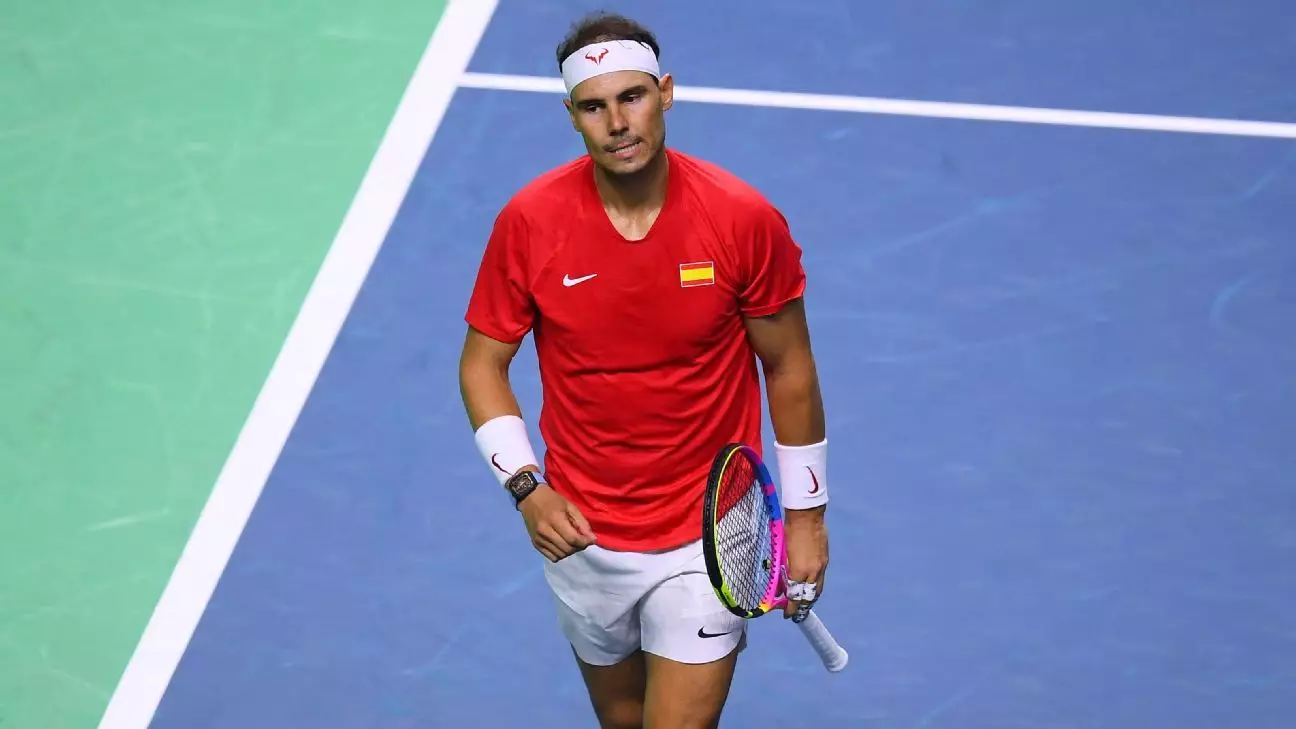Rafael Nadal, one of tennis’s most revered figures, has been in the public eye for over two decades, captivating fans with his extraordinary skills and athleticism. However, after a recent performance in the Davis Cup quarterfinals against Botic Van De Zandschulp, Nadal shared his reflections on potential retirement and team selection. With his infamous fighting spirit, the question of whether he should continue to represent Spain looms larger than ever. Post-match, he voiced his doubts, indicating that his recent form might not merit his selection for further team matches, especially in light of Roberto Bautista Agut’s proficiency and form.
Nadal’s candid acknowledgment highlights a unique aspect of sports: the interplay between personal ambition and team dynamics. With a storied career nearing its end, he appears to recognize that his selection is not merely about past accolades but should be driven by current performance and contribution to the team’s success. His humility and understanding of the sport’s evolving nature reflect a maturity that has been central to his journey.
The role of a team captain is inherently complex, involving crucial decisions that can dictate a team’s fate in high-stakes competitions. Nadal respects the authority of David Ferrer, the Spanish captain, while expressing his belief that it might be wise to replace him if Spain advances. This dialogue opens up a broader discussion: how important is it for a player to defer to their captain, and how does one weigh their individual performance against team strategy?
In emphasizing that “it’s not my decision,” Nadal reiterates a respect for the collective will of the team and brings to light the often unspoken tension between personal drive and the larger goal of team success. His comments suggest that elite athletes grapple with reconciling their historical roles with their current capabilities, a reflection that resonates well beyond tennis.
Nadal’s words conveyed a poignant moment of introspection. As he navigated through the emotions of what could be his last singles match, he articulated feelings of both nostalgia and urgency. Reflecting on his legacy while aiming to contribute to a team’s success is a delicate balance—one that many athletes grapple with in their twilight years. The emotional weight of the national anthem, combined with the pressure of performing well, underscored the gravity of the situation.
“I tried to do my best,” he stated, alluding to the reality that despite one’s best efforts, outcomes in sports can be unpredictably harsh. In recognizing Botic’s superior performance, Nadal exhibited sportsmanship that has become synonymous with his character. This moment serves as a reminder of the unpredictable nature of competitive sports, where outcomes can hinge on a single match.
Looking ahead, Nadal remains hopeful as Spain grapples with the Netherlands. The goal of advancing further in the tournament depends not only on individual performances but also on collective spirit and strategy. The dynamics of team sports showcase that one player’s loss can set the stage for others to rise; in this case, Carlos Alcaraz’s potential victories could become pivotal.
With each match, the looming shadow of Nadal’s exit from professional tennis becomes more palpable. As he indicated, his future participation hinges on the team’s success, mixing personal aspirations with the practical realities of the competition. In a sport often defined by individual triumphs, Nadal’s outlook sheds light on the importance of teamwork and camaraderie.
As Nadal contemplates his role in this pivotal Davis Cup match, he embodies the spirit of a champion who remains committed to his team, even as he faces the end of his illustrious career. The intersection between his legacy and the future of Spanish tennis will undoubtedly be a subject of discussion among fans and analysts alike. Regardless of the outcome, Nadal’s contributions to the sport will continue to inspire future generations, ensuring that his story—of perseverance, humility, and champion mentality—resonates long after his final match.


Leave a Reply